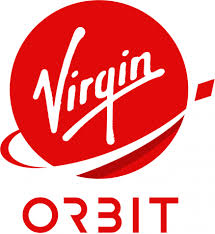Enthusiasts who want to fly to outer space might have to wait a little while longer. As reports, the test launch done by Virgin Orbit ended up failing, after the Boeing 747 dropped the LauncherOne rocket from it. Soon after the test, Virgin Orbit confirmed that while the drop was successful, the rocket suffered an anomaly. Here’s a look at what happened and what it could mean for the company, which aims to send tourists to space soon enough.
Not There Yet
The test flight happened yesterday, and the rocket after being dropped was to take off and ignite. However, the company confirmed that while it successfully ignited, some anomaly caused the rocket to then fall. The company has said that they will look into the data, to try to figure out what went wrong, and later try again. Virgin Orbit also made it clear that the test’s failure had not left anyone hurt or injured. William Pomerantz, VP of Special Operations at Virgin Orbit, tweeted that the team would go to bed wiser than they were in the morning. He stated that while the mission wasn’t a complete success, they were able to tackle one of the most significant technical hurdles associated with the launch.
To The Stars
Virgin Orbit, is a sister company to Richard Branson’s space tourism firm Virgin Galactic, which plans to send people to outer space. The company was out on Monday to test its small satellite launcher and rocket, which it had been developing over the last six years. The company was hoping to see the rocket successfully detach itself, ignite and then launch itself. However, while it did two of the first two correctly, some anomaly caused it to fail while in air.
How The Virgin Orbit’s Mission Plan Looks
The main rocket used by Virgin Orbit, LauncherOne, has the capacity to launch small and medium-sized payloads. The rocket can handle payloads that are as big as a washing machine and can launch them into outer space. The rocket utilises some unique science to do so, as it does not launch itself straight from the ground. Instead, LauncherOne starts its flight from under the wing of a Boeing 747 plane.
Nicknamed the Cosmic Girl, the Boeing 747 can carry the LauncherOne up to a maximum of 35,000 feet. Once the plane reaches that altitude, it pulls up and angles itself correctly so that the rocket can drop away. Once it falls, the LauncherOne’s engine ignites and propels ut towards outer space, along with its payload. Virgin Orbit’s CEO, Dan Hart, says that this unique science helps them stand apart. Due to this technology, they can launch outer space rockets from anywhere, as all they need is a suitable Boeing 747 plane. Therefore, this new technology gives the company incredible flexibility and accessibility.
Way Ahead
However, while this is how the technology should work, yesterday’s failure has highlighted the errors in their judgement. The test launch yesterday was the first time the Virgin Orbit would have put anything into orbit, which the LauncherOne is yet to achieve. While the company has been testing its hardware for a while, they are yet to breach the limits of space. Some of the tests that ended successfully were ignition tests for the LauncherOne engine, named NewtonThree. These tests were mainly done at Virgin Orbit’s facility situated at the Mojave Air and Space Port.
Moving Ahead
The Cosmic Girl is handled and flown by their chief pilot, Kelly Latimer, who has taken the main role in several launches. The team had even successfully launched a dummy rocket a while back to ensure that it fell the way they wanted it to. In essence, the team had tested everything except the rocket’s ignition, which is where things went wrong.
The way here has been a long one for Virgin Orbit, which had anticipated to test the LauncherOne much earlier. However, they were held up due to work developing the rocket. Additionally, the COVID-19 pandemic led to the company halting its operations in Virgin Orbit factories along Long Beach. During the test, the LauncherOne carried a weighted payload that resembled a customer’s satellite. Though it did not end up how they planned, the company aims to learn from this failure and analyse what went wrong. Since more than half inaugural launches of new rockets fail, the team is prepared to rework the rocket and try again.
Once the rockets clear the test, the company’s first commercial service is launching over 10 satellites for NASA, via mission ELaNa XX. Once that is done, the company will then move on to launching small payloads into orbit. The other significant players in this market include Elon Musk-founded SpaceX, which is also trying to launch vehicles into space. We will have to see how all these plans pan out in the future. But for now, Virgin Orbit needs to focus on getting their launching right!

Being a cinephile with a love for all things outdoorsy, Athulya never misses a chance to chase inspiring stories or poke fun at things, even when the subject is herself. Currently pursuing a degree in mechanical engineering, she is someone innately interested in technical and scientific research. Music reviews and op-eds define her as they allow her to explore different perspectives. Though sometimes she thinks she makes more sense playing the guitar than she does while writing.
